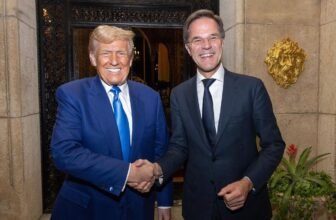
In a recent wave of media censorship, Turkish authorities have restricted access to the X (formerly Twitter) account of independent journalist Metin Cihan. The move follows Cihan’s publication of official documents revealing ongoing trade activity between Turkey and Israel, despite Ankara’s public condemnation of Israel’s military actions in Gaza.
Background on the Blockade
As of February 8, 2025, users in Turkey attempting to access Cihan’s posts received a message stating that the content was unavailable in their region. Cihan strongly condemned this censorship, arguing that it violates fundamental freedom of speech principles. He highlighted that in Turkey, criticizing the government can lead to arrests, while authorities exert pressure on social media platforms to silence content that challenges official policies.
Broader Implications for Press Freedom
This incident is part of a wider crackdown on social media censorship in Turkey. Recently, X has restricted access to at least 42 accounts operated by Turkish journalists, activists, and independent media organizations. This move has been widely criticized by international watchdogs, who view it as an attempt to suppress dissent and control the narrative on sensitive topics.
Global Debate on Social Media Compliance
The way social media platforms respond to censorship requests from Turkey has sparked international debate. Elon Musk, owner of X, has faced criticism for complying with such demands, raising concerns about the platform’s commitment to free speech. Critics argue that giving in to government pressure undermines both platform integrity and the public’s right to information.
FAQ
What led to the blocking of Metin Cihan’s account in Turkey?
Cihan’s account was suspended after he shared official state documents revealing that the Turkish government continued trade relations with Israel, contradicting its public stance condemning Israeli military actions in Gaza.
How does this incident fit into the broader issue of media freedom in Turkey?
This case reflects the ongoing decline of press freedom in Turkey, where authorities have routinely targeted journalists and independent media outlets critical of government policies.
What has been the international reaction to these censorship efforts?
Human rights organizations and press freedom advocates have condemned these actions, viewing them as attempts to suppress dissent and limit freedom of expression.
Which social media platforms have complied with Turkish censorship requests?
Platforms like X have restricted access to several accounts at the request of the Turkish government, sparking concerns over the balance between following local regulations and upholding free speech values.
What does this mean for journalists and activists in Turkey?
The blocking of accounts and increased censorship may lead to self-censorship, restricting the flow of information and public discourse. Journalists and activists may face greater risks in reporting on controversial issues.
We encourage readers to share their opinions on this issue and join discussions on press freedom and censorship. Your voice matters in promoting transparency and accountability.






